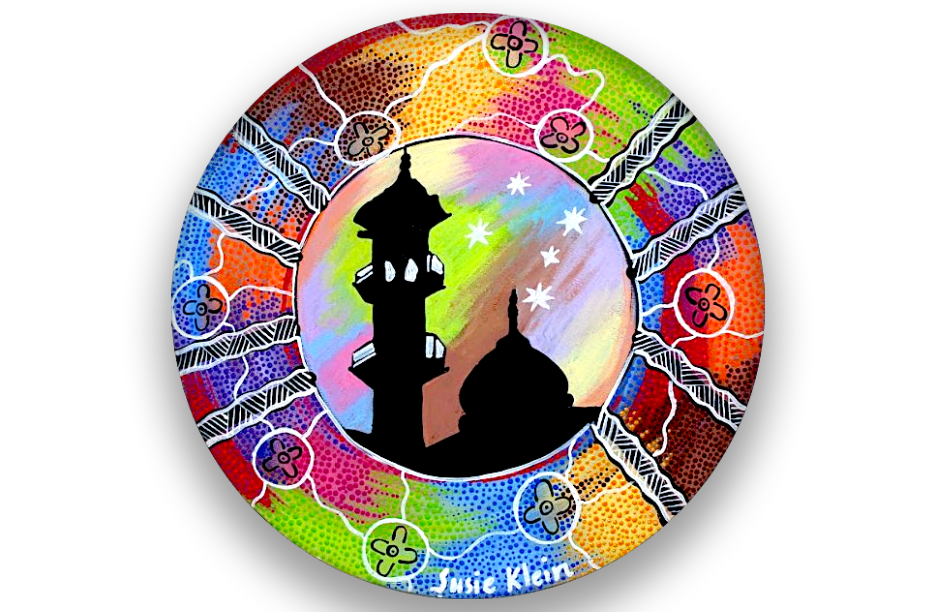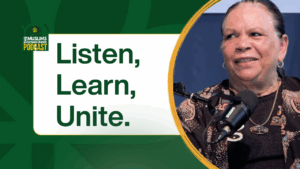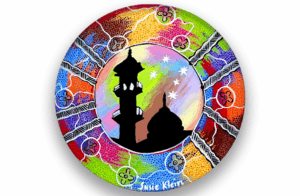We acknowledge the traditional custodians of this land, Terra Australis, and their Elders past, present, and emerging. We respect their continuing connection with land, waterways, skies, and culture, and the contributions they make towards this beautiful land Down Under, Australia.
Indigenous Australians have faced a long history of painful colonisation and face intergenerational disadvantages across many spectrums. Despite this, values of respect and traditions, as well as tolerance of cultural differences and practices, profoundly exist among Indigenous people and communities.
Like Islam, which emphasises the need for equality among all of mankind irrespective of race, skin colour, culture, or faith, Indigenous Australians place great importance and need for a peaceful co-existence.
In Australia, it is commonly unknown that both Indigenous Australians and Muslims lived side by side without conflict or discord, for more than three centuries, and that this coexistence still prevails today. Even before contact with the early Christian settlers, Indigenous communities interacted and lived in harmony with Muslims (1). From as early as the 16th century, when Muslim cameleers, labourers, and industrialists were living in regions such as Arnhem Land in the Northern Territory, to Broome, and Central Australia, where the Muslim cameleers prevailed (2), both communities had built strong links and developed sound coherence. Relationships of Muslims with local Aboriginal people were developed over time, and a great sense of respect and mutual understanding existed. Intermarriages were common, and there are Aboriginal families with surnames including Khan, Sultan, Nasir, Muhammad, and Akbar that still prevail in Australia (3).
In the current era, many nations across the world implement unjust policies inciting racial discrimination.
History is also a witness to forced invasions and occupation of land in Australia. The Holy Quran explains that God Almighty has created different races and tribes across the World for the benefit of mankind:
“O Mankind… and we have made you tribes and sub-tribes that you may know one another…” (49:14)
It is obligatory for everyone to respect and get to know each other’s cultures and traditions. No one has the right to discriminate against another. The Holy Prophet of Islam, Muhammad (peace be upon him) has firmly spoken against racial supremacy.
He said: “O People, your Lord is One, you are the progeny of the same father (who was created from dust). Hence it is not permissible for you to make any discrimination between high and low… A white person is not superior to a black person, nor is a black person superior to a white person. The most honourable among you in the sight of God is the one who is the most righteous.”
Despite obvious differences in beliefs, there is a great deal of cultural overlap and similarities in traditional practices between Indigenous Australians and Muslims. In the Holy Quran, God Almighty states that:
‘Verily, We have sent thee with the truth, as a bearer of glad tidings and as a Warner; and there are no people to whom a Warner has not been sent’. (35:25).
This means that according to Islam Indigenous Australians were also sent Messengers and their beliefs ultimately originate from Heavenly (Godly) teachings (4). As such, Indigenous Australians have a range of cultural, spiritual, and traditional aspects in common with Islamic teachings.
The Indigenous people of Australia are very spiritual, and their faith is preserved as oral traditions handed down through generations, and now considered as mythology (4). Similarities that exist between Muslims and Indigenous people include a belief in one God, the importance of spirituality, the belief in angels, the concept of an afterlife, and the existence of divine guidance through dreams (3, 4).
Today, an increasing number of Indigenous Australians are seeking a way of life that can provide them with the religious freedom to practice their culture and keep their traditions alive.
Indigenous Australians have strongly identified with the liberties in Islam which allow for the upkeep of cultural and traditional practices that are important to Indigenous people (3).
The Holy Prophet Muhammad (peace be upon him) has said: “He is not of us who does not have mercy on young children, nor honors the elderly”.
The strong importance of paying respect to Elders and kindness towards youth, and the significance of community connectedness, are all beliefs that Islam promotes and prescribes, and are also central to the traditional beliefs of Indigenous people (3).
Similarly, the importance of taking care of the environment, respecting the land that nourishes us, and looking after other living creations, are central tenets of Islam, and also hold great significance for Indigenous Australians.
The Holy Prophet Muhammad (peace be upon him) has said, “If a Muslim plants a tree or sows seeds, and then a bird, or a person or an animal eats from it, it is regarded as a charitable gift for him.” Meaning that he will be rewarded every time someone benefits from his charitable action even after death.
The Muslims Down Under campaign unconditionally rejects all forms of racial supremacy and bigotry.
According to the true teachings of Islam, we strongly believe in equality for all and freedom to practice faith. We encourage the use of open dialogue, communication, and tolerance and stand in solidarity with our Indigenous Australian brothers and sisters.
Together, we aim to educate each other, centering Indigenous ways of knowing, being, and doing across our diverse communities. As a call to action for meaningful reconciliation, creating pathways for future generations, to listen, learn, and connect.



